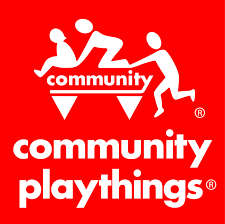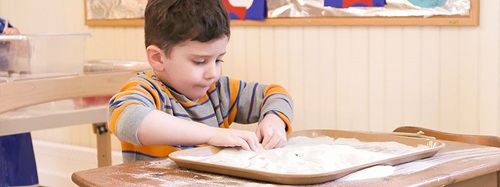The Power of Parents
Supporting Families Towards Effective Advocacy and Involvement
|
July 2010
I’ll always remember the day I stood in front of a room full of people, where I was sharing the story of my involvement and advocacy strategies as a parent in navigating the medical and educational systems that were serving our family. One of the professionals raised her hand and commented, “I wish we had parents like you in our state.”
I was flattered, of course. But later as I began to reflect on that comment, I began to think of the hundreds of families I have had the honor to meet through my work as a director for a non-profit organization, Hands & Voices, and realized – of course there were “other parents like me.” I knew that I was not born a natural advocate and had learned the ropes along the way. For many parents, becoming an effective advocate for their child may not occur naturally but is something that is learned over time and modeled by other parents and the professionals that serve them.
It’s common sense that parent involvement is critical to the success of students.
Many studies have been conducted over the past 30 years that identify parent involvement as the one most important factor in student success in school (Henderson & Berla, 2000; Hoover-Dempsey & Sandler, 1997; Epstein, 2001). Benefits of parent involvement include higher reading scores, higher grades on homework, improved attitudes towards school, and improved relationships between parents and teachers (Donahoo, Saran, 2001). Understanding this, it can often be frustrating for teachers when they are spending hours with students every day and then encountering families who just don’t seem to be engaged.
For those of you working with families in programs across the nation, I’m sure you can think of a continuum of family involvement that exists, from the “cookie mom” to the “parent from hell” – from the parent who follows through on everything asked of them to the parent who is never seen after day one. How can you move families “up the scale” to success as involved parents who have effective advocacy skills?
Opportunity Knocks
The transition to the preschool years is a prime opportunity to begin to model the involvement and advocacy skills that a family will need to ensure success through the education years. Preschool programs can make or break a family’s first impression of their own acceptance as equal and respected partners in the education of their children. Administrators and teachers can set the tone for this by affirming and believing that any parent, regardless of their race, ethnicity, marital status, religion and other often-cited demographics, can step up to the plate and learn effective involvement as parents, as well as advocacy skills. For many families, preschool is the first time they are separated from their children on a daily basis, and learning how to be engaged as a family when they are not always physically present in their child’s life, is something that must now be acquired.
The Power of the Professional
The first professional that worked with our daughter Sara after she was identified to be hard of hearing as a two-year-old changed my life. I fully expected this professional to come through the door and tell me what to do. She was the expert, after all. But what she did in those early days laid a foundation that, 16 years later, still moves me to tears. She treated me like I knew what to do and that she believed I would make the right choices. I was young, scared, and unsure of myself. I didn’t have the information, knowledge, or expertise I needed. I even begged her to “just tell me what to do.” But she knew that she would not be with me for the rest of my life – that I had to learn to be the decision maker and advocate, and to be meaningfully involved for many more years to come. She knew that while she was in our lives for a short period of time, I would be the one that would need to have the skills to get my daughter to success. She resisted the temptation to see herself as the only expert in the room, and valued my contributions as a parent.
Recognizing the Power of Parents from the Beginning
From the first day, families generally have a basic foundation of valuable assets that no one else can bring to the table:
- A mother’s and/or father’s love
- Seeing their child as a whole human being
- Understanding the family’s priorities and values
- Ultimate responsibility for their child
- A lifetime commitment
- The right to make choices on behalf of their child
When these assets are valued from the beginning, self-confidence grows for the family. Self-confidence is a precursor to effective advocacy. Families reflect self-confidence when they have a sense that they have something to contribute, and that grows into the knowledge that they truly are the experts of their own child.
Collaborative Partnerships
Administrators and educators also play a vital role in the lives of families, particularly for students who are at-risk. These professionals also have much-needed assets:
- Educational background
- Experience
- Expertise
- Passion, dedication, caring
We understand why the collaborative relationship in education between parents and professionals is so essential. When a partnership begins to emerge, the assets of both parents and professionals begin to combine towards the success we are all seeking. We know kids won’t have appropriate literacy skills which are taught at school if parents don’t join in the effort of teaching their child to read at home. There are critical issues, such as child abuse and neglect, in which parents must be given information and skills to observe, understand, and respond to this issue, with school personnel also having skills to address this piece of the puzzle in collaboration. When children are screened at school for health issues (hearing loss, vision etc.), if parents do not follow up, then the collaborative link is broken. As parents, we cannot point our fingers at the educational system for failing our children. Educational programs cannot point their fingers at parents. We must truly work together and collaborate for successful outcomes for our children. We are partners in this venture!
Utilizing Other Parents as Models
Programs often strive to connect families to one another through a variety of methods. Often this is for emotional support and community opportunities. One of the often-overlooked purposes of parent-to-parent connections is the opportunity for families to see positively-modeled behaviors of effective parent involvement and advocacy from their peers: other families. In our organization at Hands & Voices, we have seen over and over again that parents who seemed unengaged, and who were even considered “deadbeat parents” by those that were serving their children, began to step up to the plate when they met other parents who were taking responsibility for the education of their own children. This seems to be true across the spectrum of the different types and diversity of families. Asking families in your program who are actively involved to lead activities for other families can begin an infestation of involvement! This can happen in a variety of ways, but here are some tips for creating parent-to-parent opportunities that seem to “gather the crowds”:
- By parents, for parents
- Offering different forums for support (phone, newsletter, workshops, meetings, informal, social etc.)
- Choosing topics “where the rubber meets the road”
- Consistency
Families Need to Learn Advocacy Strategies
It is a well-known fact in parent advocacy disability circles that, in order to enable a child with special needs to get an appropriate education, parents must learn to become effective advocates. This is true for all families of all children. Even in the continuum of any particular family’s ability to advocate effectively (i.e. hierarchy of need – it’s hard to attend an advocacy workshop if you don’t know how you are going to put food on your table), we understand that when one family advocates for their child, it can help other children whose families may not be able to consistently advocate for their own child. This is why so much of family involvement is done at the systems level – to better the systems for all children. Nevertheless, all parents should be at least given the opportunity to increase their advocacy skills. There are websites, supports and programs in almost every community for advocacy training. Acquiring effective advocacy strategies enables families to develop attitudes that will lay the foundation for being meaningfully engaged, such as:
- Believing in their rights and their role as “equal partners”
- Developing endurance; accepting their lifelong parenting role
- Being principled and persistent
- Having a sense of humor
- Building relationships
Someone’s Watching
The most amazing result for me – as a parent who had the privilege of learning the importance of parent involvement and advocacy from some amazing professionals and other parents who have shaped my life – was to see my own children begin to effectively advocate and take personal responsibility for their own education. My daughter, due to her disability, was statistically expected to do poorly in school. I began to see that she had been watching me all these years. She learned advocacy skills from me. She learned that she had a right to stand up for herself and her needs. She learned accountability and responsibility, which resulted in a successful education with opportunities to follow her dreams. I was able to begin to lessen my role as an advocate in her education as she began to take it upon herself. After all, what is the point of families being meaningfully involved and effective advocates unless, at the end of the day, our children begin to take that mantle upon themselves and create a positive cycle for the next generation of parents and children that are coming along?
Hands & Voices is a family support and advocacy organization for families who have children who are deaf/hard of hearing. More information can be found at www.handsandvoices.org
Child Abuse and Neglect Information such as the project that Colorado Families for Hands & Voices is working on, contributes to the education of parents towards skills in Observing, Understanding, and Responding to this critical issue. http://www.cohandsandvoices.org/our/index.html
Example: Pilot Project E.C.H.O through the National Center for Hearing Assessment and Management which screens children in Head Start Programs for hearing loss.






